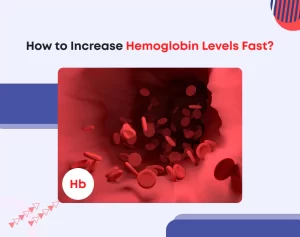
Refractory ITP Treatment: Advancements and Options
Refractory Immune Thrombocytopenia (ITP) is a challenging condition. In this blog, we’ll delve into the latest advancements and treatment options available for refractory ITP. From understanding the condition to exploring innovative therapies, we’ve got you covered. So, navigate through this journey and understand the complexities of managing refractory ITP.
Understanding Refractory ITP
Refractory ITP refers to a subset of patients with immune Thrombocytopenia who do not respond to conventional treatments. This condition poses unique challenges and requires tailored approaches for effective management. The following is what you need to know about Refractory ITP:
Definition
Persistently low platelet counts characterize refractory ITP despite undergoing standard treatments—for example, Corticosteroids, Immunosuppressants, or Splenectomy.
Challenges
Managing refractory ITP can be complex. It may be due to the heterogeneous nature of the disease and the variability in patient responses to therapy. Additionally, long-term steroid use and other conventional treatments may lead to adverse effects and complications.
Importance of Early Detection
Early identification of refractory ITP is crucial for initiating appropriate interventions and preventing disease progression. Regular monitoring of platelet counts and clinical symptoms is essential for timely diagnosis and management.
Underlying Mechanisms
The pathophysiology of refractory ITP involves dysregulation of the immune system. This results in a faster breakdown of platelets and restricted production. Understanding the underlying mechanisms can guide treatment decisions and therapeutic strategies.
Diagnosis Challenges
Diagnosing refractory ITP requires thorough evaluation and exclusion of other potential causes of Thrombocytopenia—for example, infections, medications, or underlying medical conditions. Specialized laboratory tests and clinical assessments may be necessary to confirm the diagnosis and assess the disease severity.
Knowing about Refractory ITP is essential for effective management and treatment. By recognizing the challenges, the importance of early detection, and the underlying mechanisms, healthcare providers can better navigate this complex condition and provide optimal patient care.
Exploring Advancements in Refractory ITP Treatment
Advancements in medical research and technology have paved the way for innovative treatment modalities targeting refractory ITP. Here, explore some of the latest developments in this field:
Novel Therapies
Emerging therapies have shown promising results in managing refractory ITP by stimulating platelet production. One of them is Thrombopoietin Receptor Agonists (TPO-RAs). Drugs like Romiplostim and Eltrombopag have demonstrated efficacy in increasing platelet counts. Further, they reduce the need for rescue treatments.
Immune Modulation
There are immunomodulatory agents like Rituximab and Fostamatinib in the market. These have emerged as potential treatment options for refractory ITP. They target abnormal immune responses underlying the disease. Besides, these agents modulate immune cell activity and cytokine signalling, leading to improved platelet production and function.
Targeted Therapies
Researchers are studying new treatments for refractory ITP. These therapies focus on specific pathways in the body that are involved in platelet destruction and autoantibody production. They aim to stop these harmful processes, providing a more focused and personalized way to treat the condition.
Combination Therapies
Using different types of treatments together, like TPO-RAs with drugs that affect the immune system or targeted therapies, can make treatment more effective and help patients with refractory ITP. These combinations target various ways of ITP development, making the treatment more beneficial.
Individualized Treatment Approaches
Recognizing the heterogeneity of refractory ITP, clinicians are increasingly adopting individualized treatment approaches. These treatments are tailored to each patient’s disease characteristics and treatment goals. Personalized medicine aims to optimize treatment outcomes while minimizing adverse effects and treatment-related complications.
The advancements in refractory ITP treatment offer hope for improved outcomes and quality of life for patients.
Exploring Treatment Options for Refractory ITP
Managing refractory ITP requires a multidisciplinary approach tailored to the individual patient’s needs and disease characteristics. The following are a few treatment options to consider:
TPO-RAs
Thrombopoietin receptor agonists, such as Romiplostim and Eltrombopag, are administered subcutaneously or orally. This is done to stimulate platelet production in refractory ITP patients. These agents have demonstrated efficacy in increasing platelet counts and reducing bleeding symptoms.
Immunomodulatory Agents
Drugs like Rituximab and Fostamatinib target aberrant immune responses in refractory ITP. They do this by modulating B-cell activity, cytokine signalling, and autoantibody production. These agents may be used as monotherapy or in combination with other treatments to achieve optimal disease control.
Splenectomy
Surgical removal of the spleen (Splenectomy) may be considered in refractory ITP patients who fail to respond to medical therapy. Splenectomy aims to eliminate the primary site of platelet destruction and improve platelet counts. However, it carries risks of surgical complications and long-term immunological consequences.
Investigational Therapies
Joining clinical trials for new treatments gives patients with refractory ITP access to the latest therapies. By taking part, they help improve understanding and treatment of the condition. These trials may test the safety and effectiveness of targeted therapies and drugs that affect the immune system or combinations of treatments in refractory ITP patients.
Supportive Care
In addition, hematologists may utilize supportive care measures such as Blood Transfusions, Corticosteroids, and Platelet Transfusions. This can manage acute bleeding episodes and maintain stable platelet counts. These supportive measures aim to alleviate symptoms and improve the quality of life for refractory ITP patients.
The diverse array of treatment options available for refractory ITP underscores the importance of a personalized and multidisciplinary approach to patient care. By considering TPO-RAs, Immunomodulatory Agents, Splenectomy, Investigational Therapies, and Supportive Care measures, healthcare professionals can tailor treatment strategies to address the unique needs and preferences of each patient.
Future Directions in Refractory ITP Treatment
Despite significant advancements in refractory ITP treatment, several challenges are there. Therefore, further research is needed to address unmet clinical needs and improve patient outcomes. Here are some future directions in refractory ITP treatment:
Precision Medicine
Advancements in genomic and molecular profiling technologies hold promise for identifying biomarkers and molecular targets for personalized treatment approaches in refractory ITP. Precision medicine aims to tailor treatment strategies to individual patient characteristics and disease mechanisms. Furthermore, it maximizes therapeutic efficacy and minimizes adverse effects.
Immunotherapy
Immunotherapeutic approaches are being explored for refractory ITP. Chimeric Antigen Receptor (CAR) T-cell Therapy and Immune Checkpoint Inhibitors are some of them. These therapies harness the power of the immune system to target and eliminate antibody-producing cells. Moreover, they offer potential long-term remission and disease control.
Biomarker Development
Finding dependable biomarkers that can predict how well a treatment will work and how the disease will progress is crucial for choosing the best treatment and monitoring refractory ITP. Scientists are working to discover biomarkers that can show disease activity, response to therapy, and prognosis. This effort helps create personalized treatment plans and guides doctors in making better treatment decisions.
Closing Thoughts
Refractory ITP poses significant challenges for patients and healthcare providers alike. However, advancements in medical research and treatment modalities offer hope for improved outcomes and quality of life.
Stay informed about the latest developments in refractory ITP treatment and collaborate with healthcare professionals. Remember, you’re not alone in this fight against refractory ITP.






